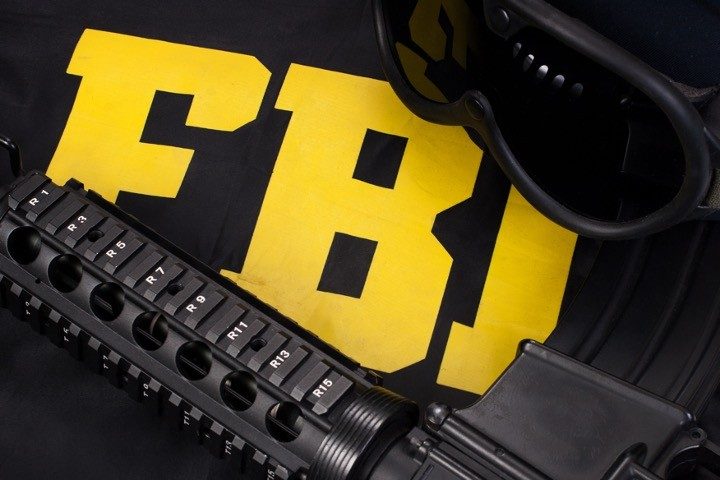
It appears that Rolling Stone will not only publish fabricated stories about gang rape, but also suppress true stories about journalists accused of using and spreading kiddie porn.
The editor of the disgraced entertainment magazine, Noah Shachtman, removed a key line from a story about James Gordon Meek, the former top producer at ABC News whom FBI agents arrested in February.
Rolling Stone’s first piece on Meek said the Biden administration collared him for possessing classified information, which made the arrest appear to be a clear case of the government using its power to crush a crusading journalist. In fact, the FBI had another reason to raid Meek’s home and arrest him: child pornography.
And though the writer had included a line about that possibility, National Public Radio’s (NPR) David Folkenflik reported this week, Shachtman pulled it.
The Story
The gist of reporter Tatiana Siegel’s story was that a tyrannical federal government raided Meek to shut him up. He was just too dangerous a reporter. He was speaking truth to power.
“Sources familiar with the matter say federal agents allegedly found classified information on Meek’s laptop during their raid,” Siegel wrote, although “one investigative journalist who worked with Meek says it would be highly unusual for a reporter or producer to keep any classified information on a computer”:
“Mr. Meek is unaware of what allegations anonymous sources are making about his possession of classified documents,” his lawyer, Eugene Gorokhov, said in a statement. “If such documents exist, as claimed, this would be within the scope of his long career as an investigative journalist covering government wrongdoing. The allegations in your inquiry are troubling for a different reason: they appear to come from a source inside the government. It is highly inappropriate, and illegal, for individuals in the government to leak information about an ongoing investigation. We hope that the DOJ [Department of Justice] promptly investigates the source of this leak.”
It is unclear what story, if any, would have put Meek in the FBI’s crosshairs. Meek worked on extremely sensitive topics — from high-profile terrorists to Americans held abroad to the exploits of Erik Prince, the founder of the infamous military contractor Blackwater. In recent years, some of Meek’s highest-profile reporting delved into a 2017 ambush by ISIS in Niger that left four American Green Berets dead. Meek and ABC then adapted the story into the feature-length documentary 3212 Un-Redacted, which debuted last year on Veteran’s Day on ABC’s sister company Hulu.
The problem is, that isn’t all that Siegel reported. Other sources told her the motive for the raid was something different.
“As edited by Rolling Stone Editor-in-Chief Noah Shachtman, however, the article omitted a key fact that Siegel initially intended to include,” NPR’s Folkenflik reported. “Siegel had learned from her sources that Meek had been raided as part of a federal investigation into images of child sex abuse.”
That became public when agents arrested Meek.
But Shachtman, who wouldn’t talk to Folkenflik, apparently didn’t believe Meek likes kiddie porn.
“As a longtime national security reporter himself, Shachtman has periodically expressed to colleagues at various outlets his skepticism of the veracity of government sources,” Folkenflik continued:
When Siegel detailed the seriousness of the allegations against Meek, Shachtman warned her against turning in a story that included the words “child pornography” in it.
According to two people with knowledge, Mark S. Zaid, a Washington attorney who often handles national security matters and represents government whistleblowers, called Shachtman on Meek’s behalf while Siegel was preparing her story. Zaid previously represented the Daily Beast on Freedom of Information Act cases while Shachtman was editor of the site.
Zaid confirms that he called Shachtman, and he tells NPR that Meek was a longtime friend and client on Freedom of Information issues. Zaid says he was representing Meek on any possible prosecution or investigation of his potential possession of classified material.
The accounts given by the associates, colleagues and friends of the two key figures — Siegel and Shachtman — diverge here. According to what Siegel told others, Shachtman and she agreed that the article would reflect that the FBI’s interest stemmed from concerns of possible criminal behavior outside the scope of Meek’s work — that is, it had nothing to do with national security or journalism.
Zaid is the leftist, hate-Trump lawyer who was involved with the attempted impeachment coup against President Donald Trump. That aside, when Siegel left work to care for her dying mom, Shachtman had his chance to sanitize her story.
“In the hours leading up to publication, Shachtman changed Siegel’s draft to remove all suggestions that the investigation was not related to Meek’s reporting,” Folkenflik reported. “He left in the finding that federal agents had allegedly found ‘classified information’ on Meek’s devices”:
The article left many readers with the distinct impression that the investigation was linked to Meek’s reporting — which could lead to a clash of the government and the press. Rolling Stone’s official Twitter account promoted the story this way: “Exclusive: Emmy-winning ABC News producer James Gordon Meek had his home raided by the FBI. His colleagues say they haven’t seen him since.” The tweet’s thrust was echoed by WikiLeaks, Glenn Beck and the Freedom of the Press Foundation, which wrote, “If this was related to his work, as this @RollingStone report suggests it might be, it is a gross press freedom violation.”
The Justice Department, though, arrested and charged Meek on the child porn counts, including video of a screaming infant being raped, on Feb. 1.
Understandably, Siegel was furious about the sneaky change and quit two months later.
Sources told Folkenflik that Shachtman is pals with Meek, which just might explain the omission.
“Prior to Meek’s arrest, Shachtman considered Meek a peer with whom he was friendly, according to associates,” Folkenflik continued:
Shachtman has told colleagues that the two men travel in the same professional circles.
Shachtman boasts his own distinguished record as a national security journalist. Earlier in his career, he founded and led the national security blog Danger Room for Wired magazine. In 2010, the writer Spencer Ackerman referred in a post on the blog to “our friend James Gordon Meek.” Shachtman later worked for Foreign Policy magazine before becoming the No. 2 editor and then editor-in-chief at the Daily Beast.
Shortly before Shachtman joined Rolling Stone, Meek suggested on Twitter that Shachtman should pay attention to an obscure band from Niger — the location of the botched military mission that Meek helped investigate for ABC. Shachtman replied by linking to an earlier review.
Rolling Stone gave Meek’s documentary a “glowing review.”
UVA Rape Story
Rolling Stone has a troubled relationship with the truth. In 2015, it published a complete fiction about a fraternity at the University of Virginia, when disgraced and discredited writer Sabrina Rubin Erdely falsely accused fraternity members of a brutal gang rape.
The magazine famously retracted the manufactured yarn and paid the fraternity $1.65 million. It settled with the dean Erdely smeared for $3 million.
As for Meek — the second high-level media bigwig caught sexually exploiting kids — he faces up to 20 years in prison for transporting child porn.
H/T: Ace of Spades



